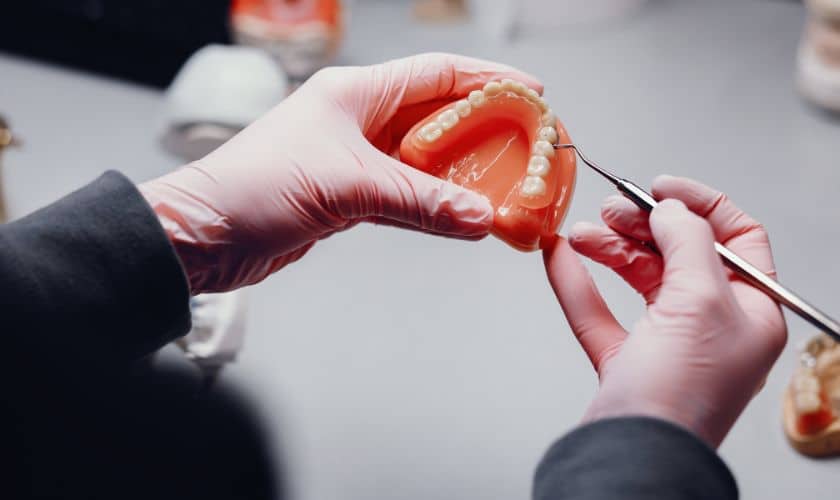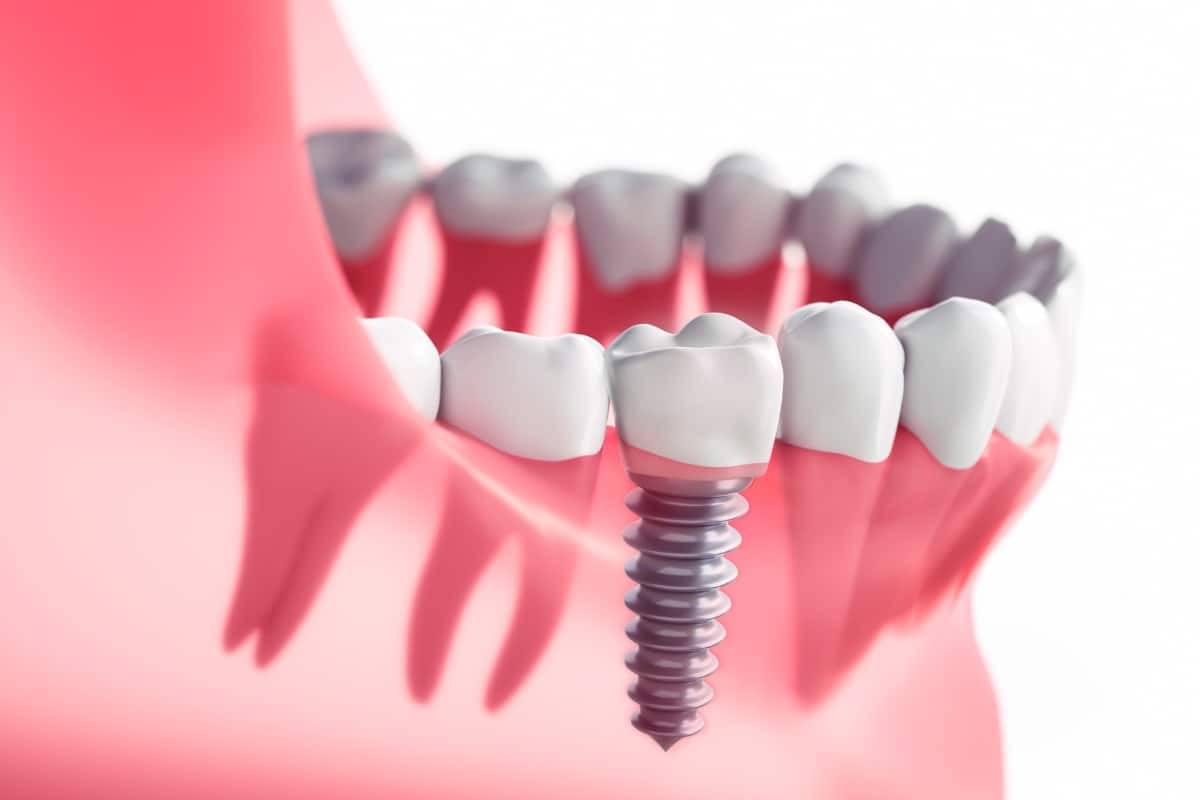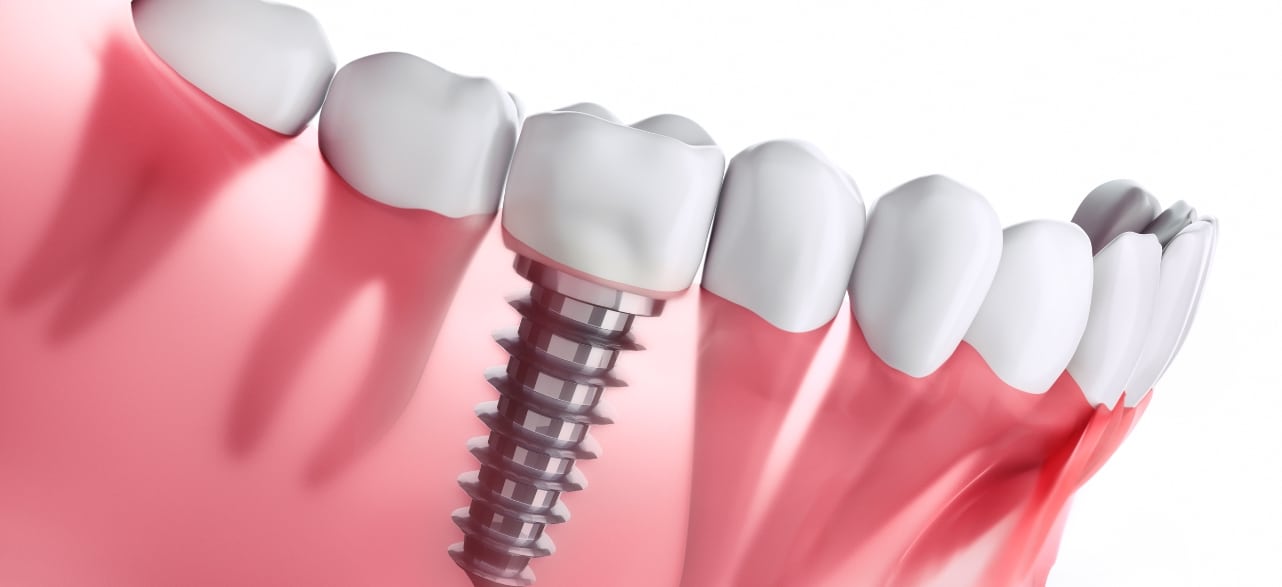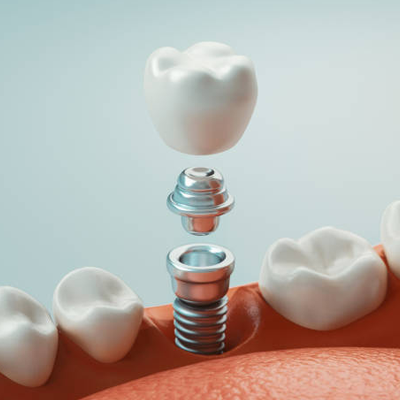
5 Things You Need to Know Before Getting Dental Implants
Are you missing one or more teeth and looking for a permanent solution? Dental implants might be the answer! These artificial tooth roots are placed into your jawbone to support a crown, bridge, or denture. But before you dive in headfirst, there are a few things you need to know.
What are dental implants?
Dental implants are artificial tooth roots that replace missing or damaged teeth. They consist of a titanium post, which is surgically implanted into the jawbone and acts as an anchor for a replacement tooth, bridge, or denture. The material used in dental implants is biocompatible with the human body and can fuse together with the bone during a process called osseointegration.
One of the biggest advantages of dental implants is that they look and function like natural teeth. Unlike traditional bridges or dentures, they don’t slip or move around in your mouth when you speak or eat. Dental implants also help maintain your facial structure by preventing bone loss and preserving surrounding teeth from shifting out of place.
The placement procedure typically involves several steps over multiple appointments with your dentist to ensure proper healing and integration between the implant post and your jawbone. After this period, an abutment is attached to secure a crown or bridge onto the implant post.
Dental implants are an excellent option for people who have lost one or more teeth due to injury, decay, gum disease, aging, genetics, etc., but it’s important to consult with your dentist first to determine if you’re eligible for this treatment option based on various factors such as age, overall health, oral hygiene habits, etc.
Who is a good candidate for dental implants?
Dental implants are a popular solution for missing teeth, but not everyone is a good candidate for this treatment. The ideal candidates for dental implants are those who have lost one or more teeth due to injury, decay, or disease and have healthy gums and enough bone density in their jaw to support the implant.
People with certain medical conditions such as diabetes or heart disease may need special consideration before getting dental implants. Smoking can also affect the healing process of dental implants, so it’s important to quit smoking beforehand if you’re considering this treatment.
Age is not necessarily a factor when it comes to being a candidate for dental implants. As long as your overall health is good and you don’t have any underlying medical conditions that could affect the success of the implantation process, you should be able to receive this treatment regardless of age.
It’s important to note that each case is unique and requires an individualized approach. Your dentist will evaluate your oral health status and determine whether you’re a suitable candidate for dental implants based on your specific circumstances.
What is the process of getting dental implants?
Getting dental implants is a multi-step process that requires several visits to the dentist. The first step involves a comprehensive dental examination, which includes X-rays and scans of your mouth. This allows the dentist to assess the condition of your teeth, gums, and jawbone.
If you are deemed a good candidate for dental implant surgery, the next step is to place the titanium implant into your jawbone. This involves making an incision in your gum tissue and drilling into your jawbone to create a space for the implant. Once it’s in place, you’ll need to wait several months while it fuses with surrounding bone tissue.
After this healing period has passed, the abutment (a small device that connects the implant with an artificial tooth) will be placed on top of the implanted post. Then impressions or molds will be taken from which porcelain crowns are created in order to match them perfectly with existing teeth coloration-wise.
Once everything fits properly together and looks great aesthetically too! Your new tooth (or teeth!) can finally be attached securely to their respective abutments giving you renewed confidence when smiling or eating anything crunchy!
What are the risks and complications associated with dental implants?
While dental implants are generally safe and have a high success rate, there are still risks and potential complications associated with the procedure. One of the most common issues is implant failure, which can occur if the implant doesn’t fuse properly with the jawbone or if there’s an infection around the implant site.
Other possible complications include nerve damage, sinus problems (if the implants are placed in the upper jaw), and gum recession. In rare cases, patients may experience an allergic reaction to materials used for dental implants.
Before undergoing any surgical procedure, it’s important to discuss all potential risks with your dentist or oral surgeon. They will be able to assess your individual risk factors and develop a treatment plan that minimizes these risks as much as possible.
To minimize your chances of experiencing complications after getting dental implants, be sure to follow all post-operative instructions carefully. This includes keeping your mouth clean by brushing twice daily and flossing once per day, avoiding hard foods that could damage the implants while they heal, and attending all follow-up appointments as scheduled.
How much do dental implants cost?
When it comes to dental implants, the cost can be a major concern for patients. The truth is that the cost of dental implants varies depending on a number of factors.
Firstly, the location where you live and receive treatment can have an impact on the cost. For example, dental implant costs in urban areas tend to be higher than those in rural areas.
Secondly, the extent of your tooth loss will also affect the cost. Patients who are missing multiple teeth may require more implants and thus incur greater expenses.
Thirdly, additional procedures such as bone grafting or sinus lifting may need to be performed prior to placing dental implants which can increase overall costs.
It’s important to note that while dental implant costs may seem high initially, they offer long-term benefits compared with other tooth replacement options like dentures or bridges.
It’s best to discuss your individual case with your dentist or oral surgeon who can provide a personalized estimate based on your specific needs and situation.
Conclusion
Dental implants are a popular and effective solution for missing teeth. They provide a long-term solution that looks, feels, and functions like natural teeth. However, before getting dental implants there are important factors to consider such as whether you are a good candidate for the procedure, the process of getting dental implants, and associated risks and complications.
It is important to consult with your dentist to determine if dental implants are right for you. Your dentist will evaluate your overall health, oral hygiene habits, and other factors before recommending the best treatment options.
While cost may be a concern for some people, it is important to keep in mind that investing in dental implants can improve your quality of life by providing confidence in your smile, improved speech function, and the ability to eat comfortably.
Understanding what to expect from the process of getting dental implants and taking precautions beforehand can help ensure successful results. So don’t hesitate – talk with your dentist today about how dental implants can benefit you!










